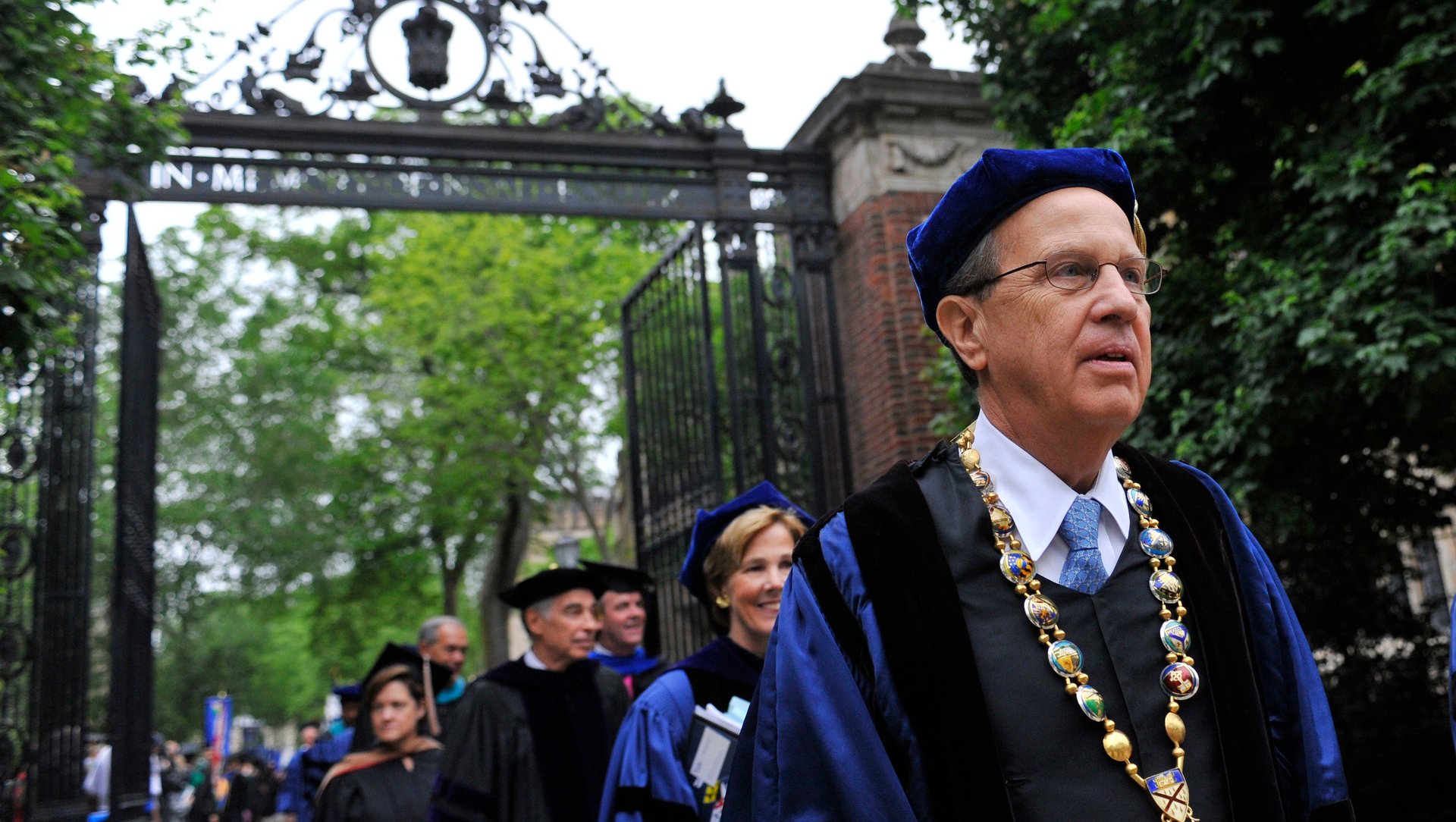Yale’s six-year-old Singapore campus is now harder to get into than the 316-year-old Yale
Yale is quite discerning; it accepted only 6.27% of applicants last year. But not as discerning as Yale-NUS College—the controversial branch campus that Yale set up with the National University of Singapore in 2011—which last year took only 5%.


Yale is quite discerning; it accepted only 6.27% of applicants last year. But not as discerning as Yale-NUS College—the controversial branch campus that Yale set up with the National University of Singapore in 2011—which last year took only 5%.
The Singapore school revealed its 2016 acceptance rate for the first time last week in response to inquiries from Yale’s student paper. Per the data, Singaporeans comprise the majority of students in last year’s highly selective class (the class of 2020), and the three countries most represented after that are the United States, India, and China. The school’s 5% global acceptance rate makes it technically harder to get into than any of the US’s Ivy League schools, even Harvard.
While Yale-NUS’s student body is much smaller than Yale’s—the school has less than 1,000 undergraduates, compared to Yale’s 5,000—the fact that its acceptance rate has dipped below its originator’s is significant for two reasons. First, it shows that Western universities’ preoccupation with opening branch campuses across the world, and particularly in Asia, seems to be paying off, at least in terms of brand growth.
The second reason is more troubling.
Between 2006, when Yale first considered the idea of international campus expansion, and 2011, when Yale-NUS was officially opened, a number of academics and education experts voiced concerns about Yale having a presence in Singapore in particular—a country whose political conservatism stands at odds with the idea of a liberal arts college. As many predicted, the school is now struggling to reconcile Yale’s individualistic values with the country’s restrictions on free speech; in 2014, it found itself in particularly hot water when it decided to show a film banned by the local government.
Yale-NUS has also been accused of delivering poor academic quality to students; one of the main criticisms is that its course curriculum is superficial and fails to deliver on the promise of meaningful, intimate seminars. If those concerns are well-founded, it raises the question of whether it’s ethical for a prestigious school like Yale to set up a campus in another country, lure students there with its brand name, and then offer a diluted caliber of teaching. In any case, Yale-NUS’s low admit rate last year—which was similarly low for previous classes, though those cohorts comprised fewer students—increasingly pushes the school into the spotlight, both for current students and aspiring ones.